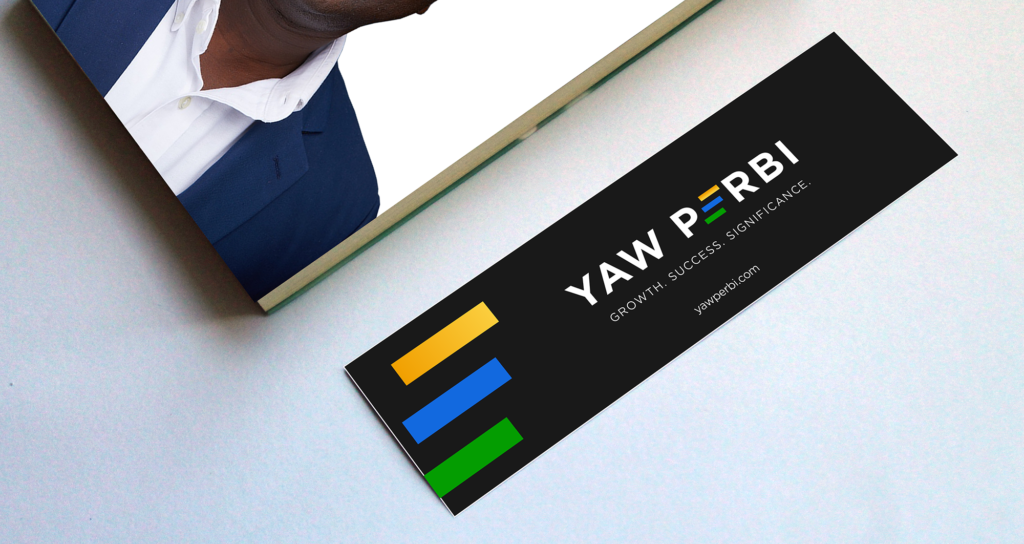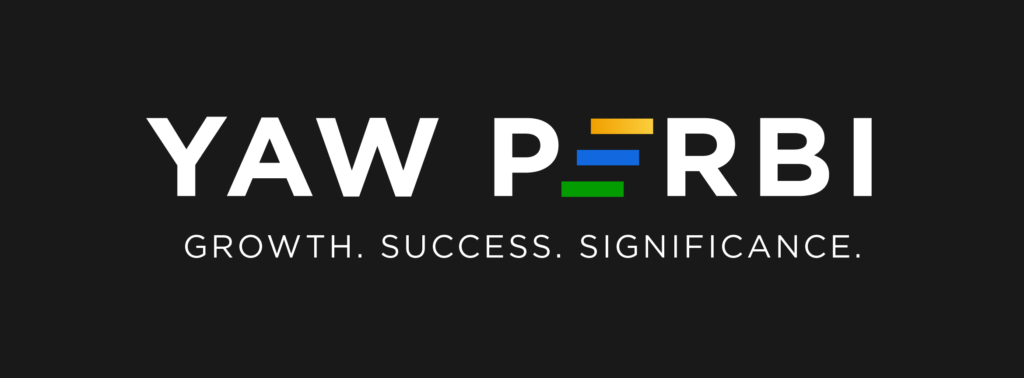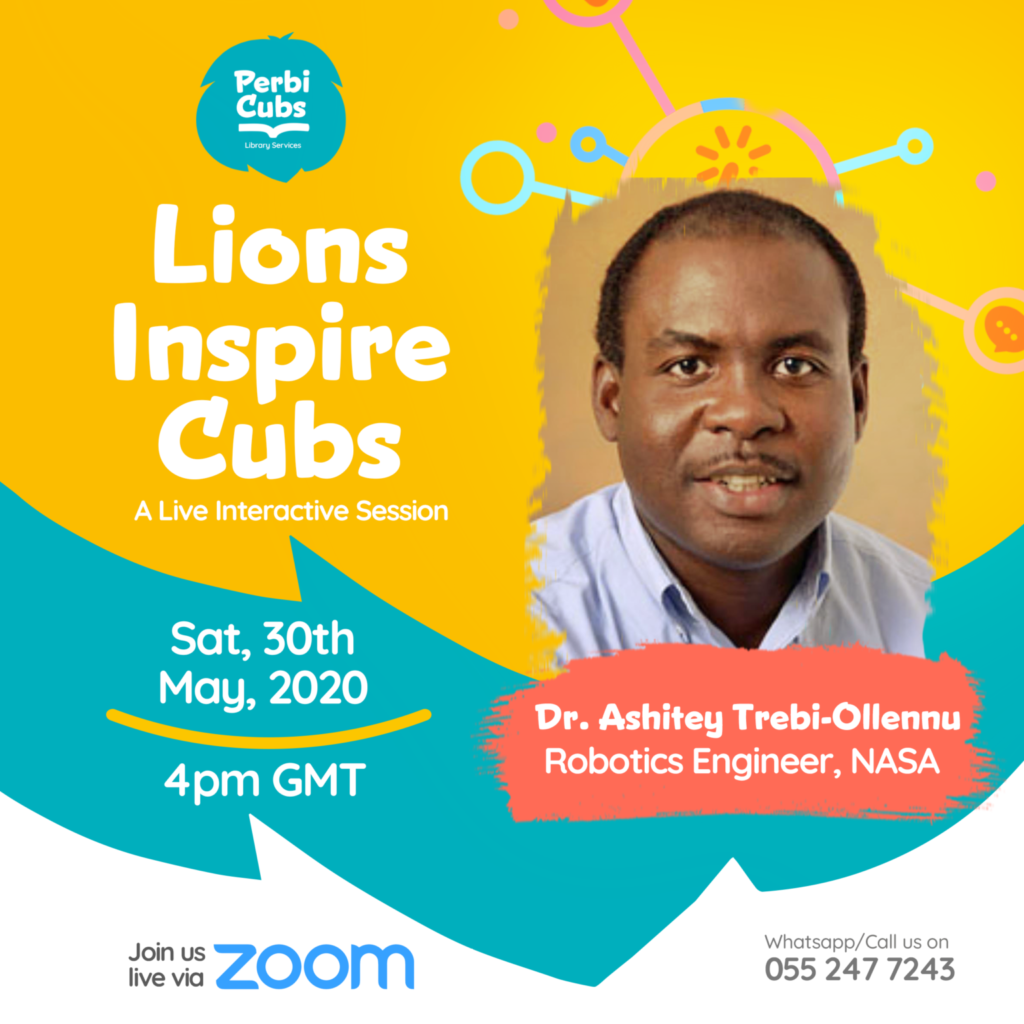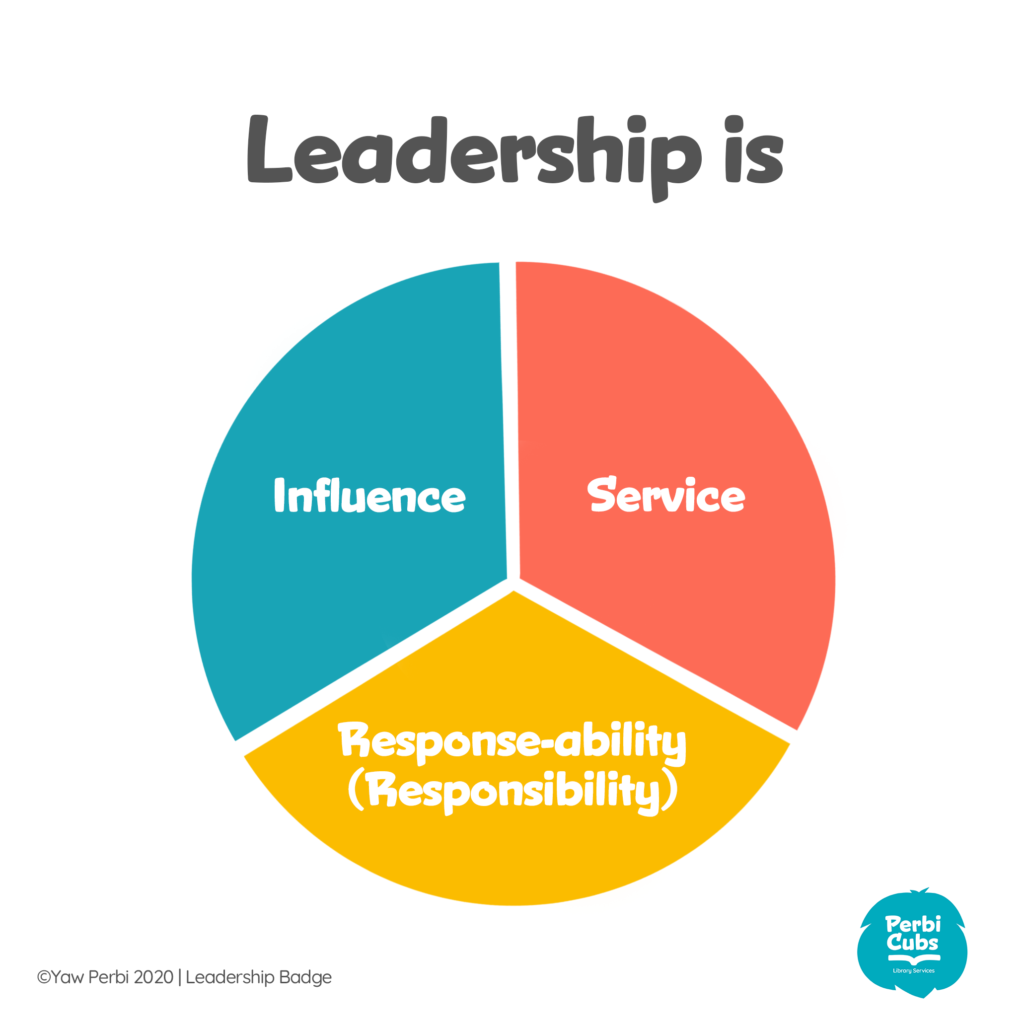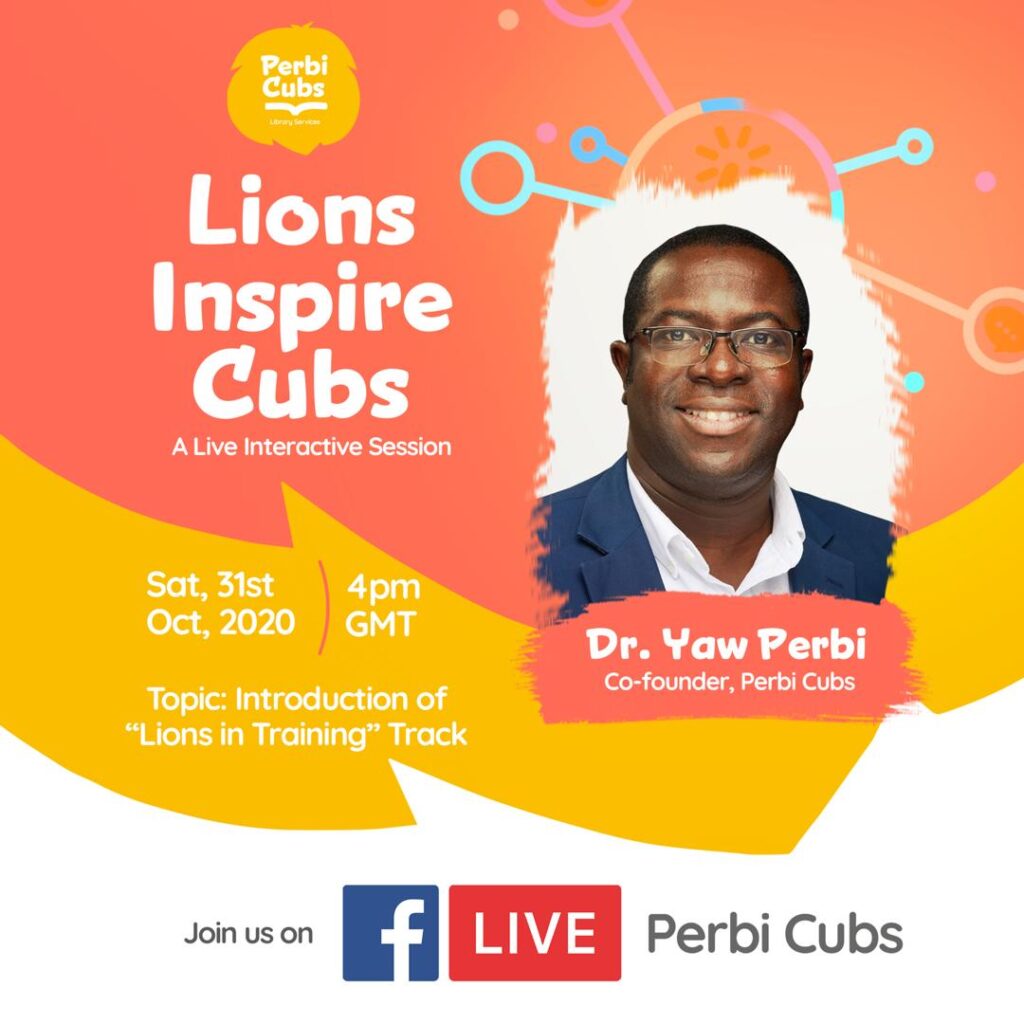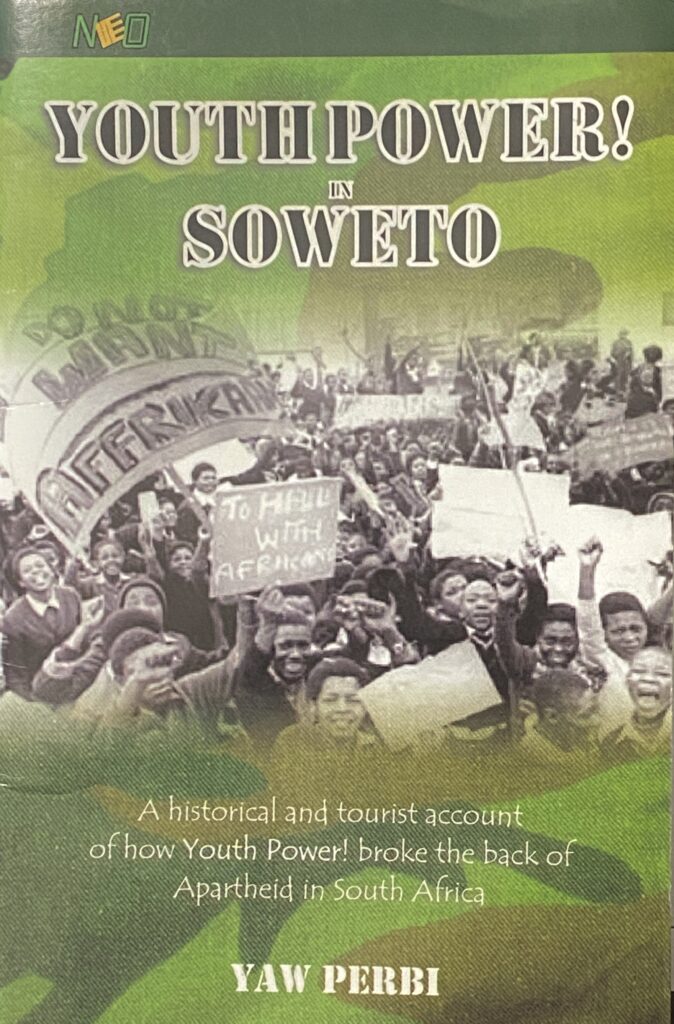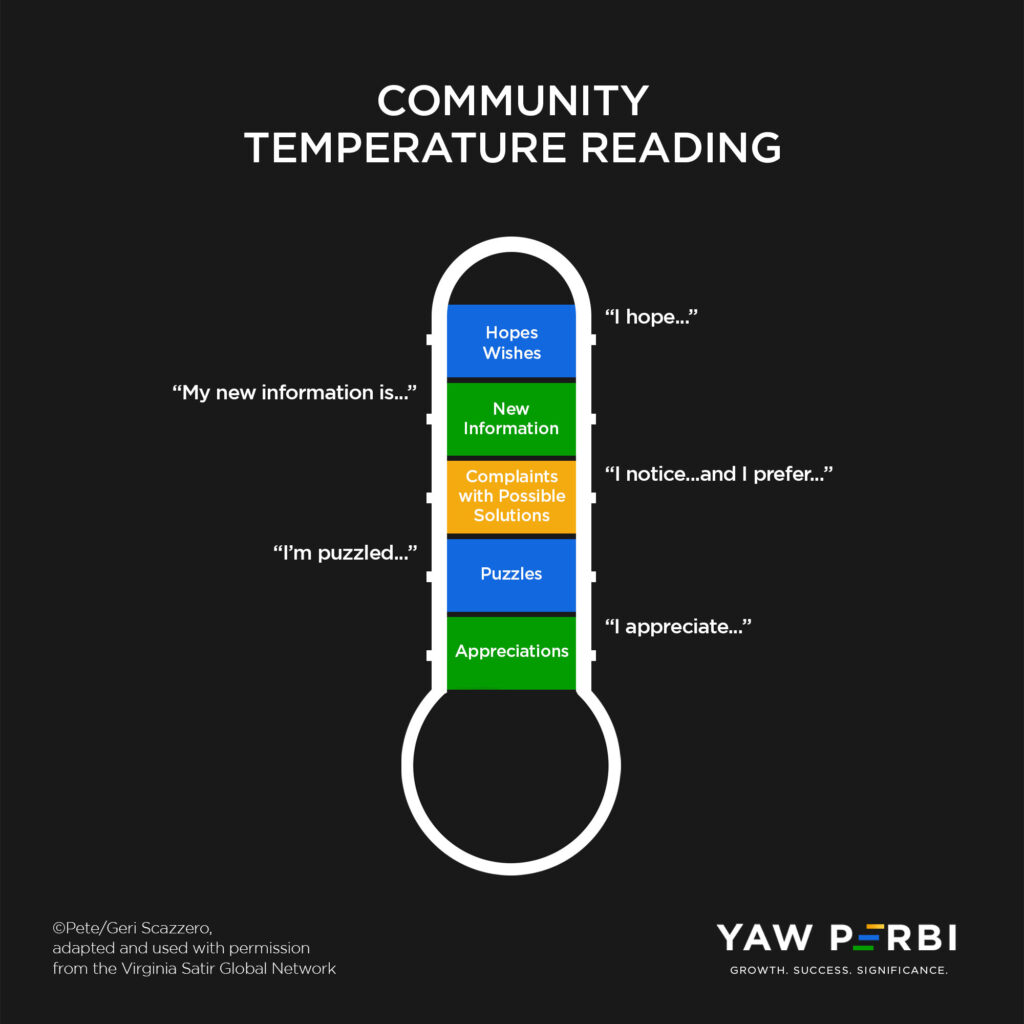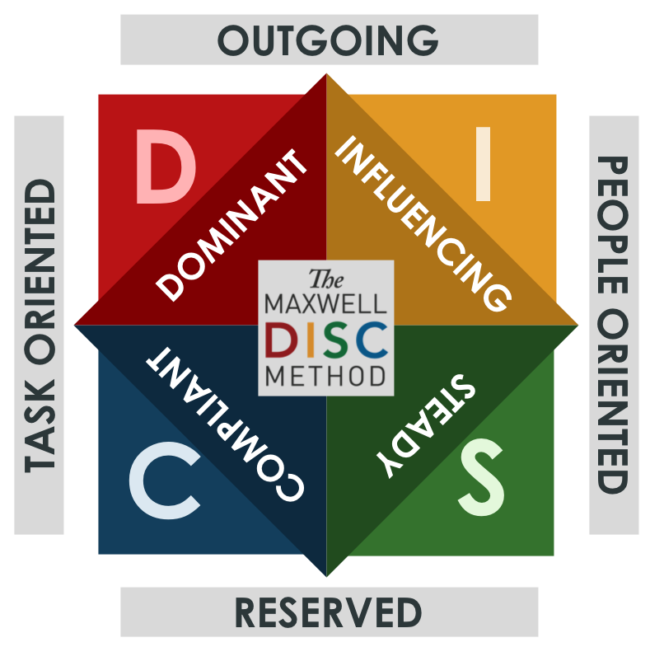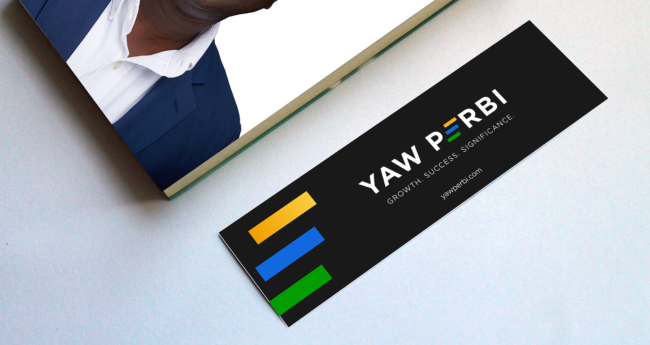
I’m Coming Out
I think I know what you’re thinking. I can bet someone’s humming Diana Ross’ 1980 scintillating song I’m coming out by now. It’s quite the hit. I love it. I’m not naive that it means different things to different people, especially the LGTBQ community. I am coming out alright but not that way. Let me tell you how.
RECEIVING A GIFT IN THE DARK
Imagine miners 6,500 feet (2km) underground more concerned about the dreariness of being in the belly of the earth than the prospects of oodles of gold ores or uranium deposits waiting to be excavated. There are treasures of darkness, riches stored in difficult places and tough times. Often we are preoccupied with the darkness or difficulty and fail to mine the gold therein.
Like many of you, the global pandemic has kept me grounded, literally. This is the longest I’ve stayed at home, ever!, for as long as I can remember. The lockdown months coincided with a four-month sabbatical from my presidency at ISMCanada, driving me underground. Among other things, I stayed away from FaceBook, Twitter and LinkedIn for almost the entire four-month period. Between the pause of a pandemic and the slowness of a sabbatical, in a mysterious way, I found myself again. I have had such quality family time with my wife of 14 years and six adorable children. There’ve been some good catching up times with my wider family, especially my dad (over Zoom). Friendships I lost 25 years ago have been restored, especially my fellow World Vision Youth Ambassadors from over 50 nations of the world. Companies I founded and neglected, like Mutual Medics, are being revived; my books that have been in demand yet out of print for years are being revised and republished… wow, this year of death has also been the year of resurrection.
Prominent among the treasures of this pandemic cum sabbatical year has been the realization that it’s about time I did less of the work of leading corporations and charities and rather focus on raising world class leaders among C-level executives who will go on to lead many good things and many great people. Of course, I’ve always mentored leaders along the way but I’m putting this on steroids now as well as a laser focus on the C-suite. For in the immortalized words of 19th/20th century YMCA leader and Nobel Peace Prize laureate John R. Mott, “He who does the work is not so profitably employed as he who multiplies the doers.”
OFFERING A GIFT OF LIGHT
I have been blessed with a lot of leadership treasures I can offer to multiple C-level doers to exponentially build great organizations and societies, even nations. After nearly eight years as President & CEO of a Canadian organization with staff from coast to coast in the second largest country on earth (and in Australia), there surely must be something I can offer someone somewhere. When I think of the fact that at 30 years old I was already the Medical Head of a United Nations Level II Hospital in Cote d’Ivoire I wonder if there isn’t a Chief Medical Officer somewhere who could use my experience. They say ‘experience is the best teacher” but my dear father likes to add a caveat: “But the fees are high.” I can think of some CEOs who could use the benefit of my mistakes. Indeed, I would rather pay a few thousand dollars in coaching fees in exchange for a senior leaders’ experience than pay the price of a painful life lesson myself, some of which one may never quite recover fully from.
I remember a young African-Canadian who wanted to get back home to the Motherland to make impact. I am glad I was able to connect her to my large network of movers and shakers on the continent as a Fellow of the Africa Leadership Initiative (ALI). Needless to say, a Fellow gave her a soft landing and she began to make a dent in Africa’s largest economy. By extension, as a Fellow of the Aspen Global Leadership Network there’s literally no place the sun shines that I don’t know somebody or at least someone who knows somebody you might need. My role as a Lausanne Movement catalyst also gives me quite the reach on all six continents.
Even though I’ve been a speaker since my teenage years and been teaching leadership, especially John C. Maxwell’s content, since the early 2,000s (while still in medical school), in 2013 I took the time, trouble and some ten thousand dollars to become an official Certified John Maxwell Team coach, speaker and trainer. My love for leadership won’t leave me alone so I continued with a Masters in Global Leadership at Fuller. It wasn’t until later on that I realized the ‘happy coincidence’ that Fuller was my mentor John’s alma mater. Actually it’s funny how I found out. Dr. Villacorta, one of my professors (originally from Peru) invited me to play soccer with him on one chilly Saturday morning in Colorado Springs. In our casual conversation after the game, en route to the parking lot, that’s when that came up. Needless to day, I was very pleased that my steps had been ordered to Fuller! But I digress.
THE BLACK CARD
Yes I love to coach and train in all sorts of leadership genres but as a serial entrepreneur myself in multiple industries from real estate investment to education, business leaders are very welcome to learn from my few successes and many mistakes! As a Black man, the last four years have been particularly painful, fighting racial bias and injustice in Canada in court and witnessing the horror of systemic racism south of the border (in the USA). Hearing the U.S. president calling the nation of my birth a “shithole country” didn’t help the situation; it just added more gasoline to the flames.
I see how many Blacks cannot breathe (tribute to #GeorgeFloyd) and the impediments in the way of even Black executives in multinational companies. I desire to offer them leverage from my experiences. Having founded The HuD Group in Ghana at the age of 25 and grown it into a world class faith-based personal development and leadership training organization with operations in over 20 countries on six continents as its Global CEO, I am eager to particularly provide C-level executives of African descent with the paradigms, processes and tools necessary to maximize their potential, to be world class, take the world stage and make their dent in the universe.
Speaking of executive coaching in multiethnic and intercultural leadership, which is our current global leadership reality, need I say that I am the first and only Black president of ISMCanada and for four years led the English congregation of the Montreal Chinese Alliance Church?
FLESHING IT OUT
So a couple of weeks ago I came out of sabbatical with bang! I am systematically unveiling a new YAW PERBI brand as an Executive Education business that is into leadership development, management training and executive coaching. This coaching, authoring, speaking and training business under the name, YAW PERBI, specializes in everything ‘LIFE’ for C-level executives. LIFE is an acronym for Leadership, Integrity, Family and Entrepreneurship. All of this is interwoven with inspiration and with undercurrents of faith. While there will be physical and electronic products like books and online courses for purchase, this business will mainly be executive services.
In my next blog, I share the vision, mission, values, unique selling proposition and offerings of the new YAW PERBI brand. Did I say “I’m coming out?” Nay, I’M OUT!
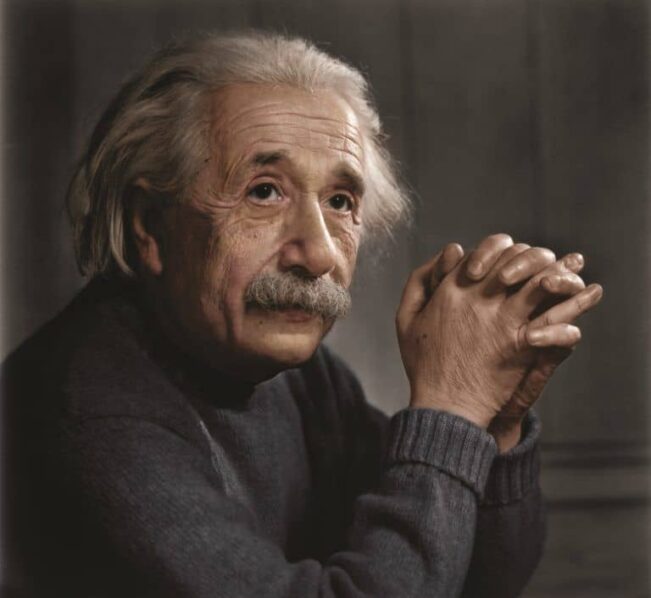
Disrespecting Einstein | A note to HR bosses

Nobel Prize Laureate Albert Einstein (14 March 1879 – 18 April 1955) Photo credit: Perimeter Institute
Exactly a week ago, I finished two days of consulting for a flourishing company in Accra that was making two new hires. It wasn’t the first time I was coaching them through the hiring process and chairing the interview panel but this time there was an HR consultant who was excellent in putting everything together, literally setting the table for us all. Meticulous chap who knows his stuff! Because of a five-hour time difference between Montreal (where I’m currently based) and Accra, the 9.30am interview start on Zoom meant 4.30am for me. Well, whatever!
Everyone interviewed was a young, hope-filled university graduate, some as freshly minted as last year. I could tell the hope in their hearts and could see the fire in their eyes to ‘make it,’ here first and in the rest of life, of course! And in fact, they weren’t asking for too much. As usual, not everyone made it. Out of eight interviewees (and this was after whittling down several applications and getting the short-listed ones to fill out pre-interview questionnaires) we had room for just two.
POST MORTEM
Now here’s the kicker: the HR consultant’s drafted letter to this group who couldn’t be hired went like this:
Dear Candidate, many thanks for your patience and continuous interest in the role of __________ at __________. After thorough consideration, we are sorry to inform you that you were not successful. We take this opportunity to wish you well in all your future endeavours.
No. I couldn’t let that pass–precisely because of that phrase have made bold above for emphasis. Words matter. So I asked him, politely, if we could put “you were not successful” in a different way, in a more positive manner? Eg. “Another candidate was preferred?” And that is what we did.
Even the CEO was touched by this. She responded, “Thanks so much for the feed back Dr Perbi. True. We are working with real people’s emotions and lives.” She then went on to recount something I had done in a previous search for a C-level executive for the same company. She wrote, “ I remember the special messages you sent to each one of the candidates who did not make it, accompanied by a summary of their performance [so they could improve, work on themselves] and a prayer for them during the previous selection process. I was touched and l believe most of them appreciated the gesture.” Indeed they had felt so valued and encouraged, some wrote back to say thank you! It almost didn’t matter that they had not been picked for the role. With that buoyancy, I bet they went on to be and do great things elsewhere.
DISRESPECTING EINSTEN
From time immemorial leaders have misjudged the capabilities and potentials of others; sometimes in an outrightly comical fashion (only on hindsight, of course!) When in 1898 Albert Einstein applied for admittance to the Munich Technical Institute he was rejected because (read this slowly) he would “never amount to much.” Consequently, instead of going to school he went to find work at the Swiss Patent Office where he was employed as an inspector and with his extra time, refined his theory of relativity. As they say, the rest is history.
MY POINT?
Ask yourself: how would I act differently if I knew for sure this was an Einstein sitting in front of me? People are not just human ‘resources’, like cogs in a wheel. They are human beings. They have emotions, identity and purpose. Each bears the imago Dei (the image of God) and in the phraseology of Büber, must be treated as a ‘Thou’; not an ‘It.’ If for nothing at all, in respect for their Creator and in honour of their boldness to apply, to step into the ring, to do something with their lives. You certainly don’t want to meet them somewhere else in life and be ashamed of what you thought of them, how you spoke to them or handled them. They might even be in a position to hire or fire you someday. You may very well be disrespecting Einstein.

How to Eat an Elephant
“The world has entered an era of the most profound and challenging change in human history. Most of our children are not prepared, and we know it. Parents around the world see the change and know that the traditional three R’s–reading, writing, and arithmetic–are necessary; but not enough. Their children need to become far more responsible, creative, and tolerant of differences. They need to increase their ability to think for themselves, take initiative, get along with others, and solve problems. Business leaders are not finding people whose skills and character match the demands of today’s global economy, including strong communication, teamwork, analytical, technology, and organizational skills. They need young people who are self-motivated, creative, and have a strong work ethic. How will we bridge this ever-widening gap?” (Leader in Me blurb)
In my previous blog, I highlighted the current global leadership crisis epitomized by the likes of U.S. president Donald Trump. Yet even over a decade ago, leadership gurus like Stephen R. Covey (of The 7 Habits of Highly Effective People fame) uttered the above words, speaking of an era of challenge our children are unprepared for. The present leadership crisis has been brewing for a long time. If we do nothing about it, we’ll be setting our world back generations, and for generations to come. So how in the world are we going about it, growing leaders from childhood? I’m glad you asked.
THE ROLE OF LIT
Perbi Cubs Library Service through their book collection, activities and Lions Inspire Cubs programs inspire and empower children to be ready for leadership and impact. The Lions Inspire Cubs program has featured Lions (Leaders making impact in society) like Dr. Ahitey Trebi-Ollenu, a Robotics engineer at NASA.
The final element of this attempt at raising young, holistic leaders is the newly-launched Lions in Training (LIT) track which results in medallion awards for Cubs. As a firm, YAW PERBI is working with Perbi Cubs from the grassroots with children at home and in school. We consult for Perbi Cubs, providing the theoretical basis and praxiological framework, breaking down high level leadership concepts into small bits to deliver leadership development to 7-14 year-olds. After all as huge as it is, even an elephant can be eat. But how do you eat an elephant? Bit by bit.
ROLE OF PARENTS IN LIT
I have often said that, “Charity begins at home, so does leadership.” Parents are not only the primary caregivers of children but their primary leadership coaches as well. Of a truth, “the hand that rocks the cradle rules the world.” So together with parents, every quarter we focus on three core areas that when gotten right will have a significant change/impact in the lives and leadership of these Cubs. Every Thursday, parents receive an email to evaluate how the child did that week as leader. These three core areas of evaluation focus on various everyday practical actions and inactions of the Cubs at home and in school.
LEADERSHIP BADGE
So after digesting tonnes of leadership articles and books and studying global leadership even at the graduate level, I have come to the conclusion that although there are over 360 documented definitions of leadership, leadership is basically responsibility, service and influence. The easiest way for a child to understand a ‘big word’ like responsiblity is response-ability.
This diagram (above) may seem simple but it is one of those things referred to as simplicity at the far end of complexity. It looks deceptively simple but has come through after a lot of complex thinking processes.
ON YOUR MARKS…
So for this quarter, this is how the children are being observed, encouraged and evaluated as Leaders in Training (LIT) in practical terms:
A. Responsibility is response-ability:
- Cub chooses to do the right thing without prompting.
- Cub is able to take charge of getting their school work done.
- Cub does not blame others for their circumstances.
B. Service is being of use to others:
- Cub is helpful at home and school.
- Cub willingly does their chores.
- Cub does not boss other people around.
- Cub uses their talents/gifts to help others or make their lives better.
C. Influence is producing effects on others:
- Cub exerts positive peer pressure.
- Cub affects the actions, behavior or opinions of siblings and friends in a good way.
- Cub sounds convincing in expressing their opinion.
CUBS CAN EAT ELEPHANTS
“So how do you eat an elephant?” my father would ask our little selves when we were just waist-high and get us head-scratching. If such a complex phenomenon like photosynthesis can be taught at the PhD level but also broken down so simply and taught at nursery (pun intended), then leadership can too. So even lion cubs can eat elephants. How? Little by little, bit by bit, one bite at a time.
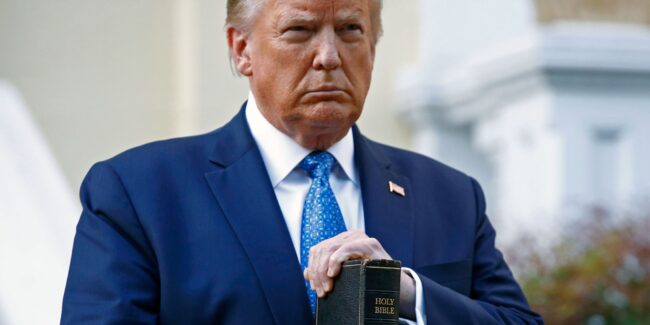
His Hair and Our Beards: Trump, a Global Leadership Crisis and our Children
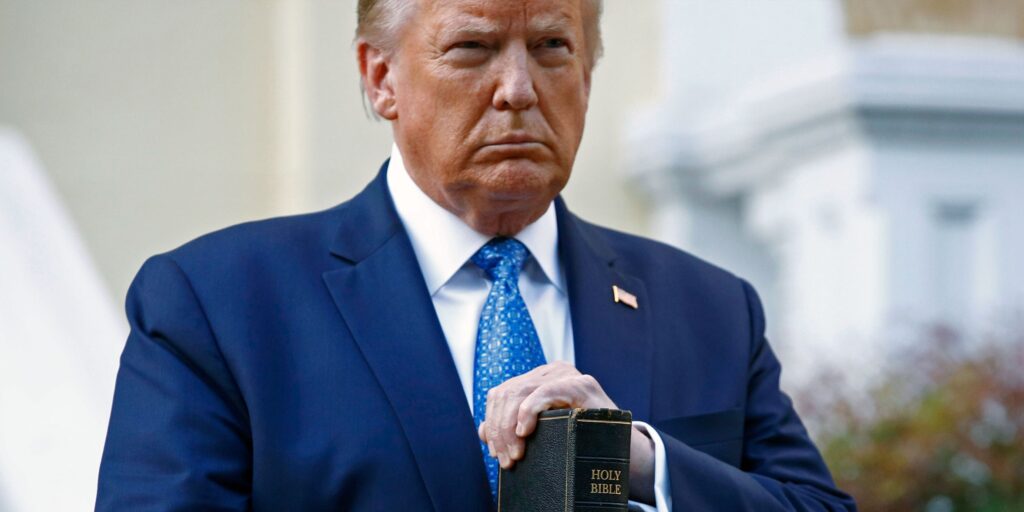
President Trump propping up a book that could flip his life and leadership if he would read and apply it. Same is true for us all! (Photo credit: The New Yorker)
“Stopping Trump is a short-term solution. The long-term solution, and it will be more difficult, is fixing the educational system that has created so many people ignorant enough to vote for Trump.” (Andy Borowitz, a satirist)
Let me begin with a disclaimer: I do not subscribe to the notion that everyone who voted for Trump is ignorant. That would be an unfair characterization. Politics is more nuanced than that. I say there are at least 3 Ps that go into one’s choice, none of which is perfect in any political party and hardly are all three aligned with what is Biblical: the PERSON (as in flag bearer), the PARTY and the POLICIES.
Having said that, how did the most powerful nation in the world end up with such a leadership crisis? I’m not just talking about the nail-biting U.S. electoral college vote count last week and the current situation where a winner has been projected but the incumbent hasn’t gathered what it takes to concede and congratulate. I speak of four years ago when America had to choose between two wannabe leaders of the free world both of whom the electorate had serious reservations about! America was caught between the red devil and the deep blue sea.
And the last four years have portrayed nearly everything I’ve been taught that leadership is NOT exhibited by the man in the White House. Is it competence in inspiring confidence about the Coronavirus pandemic and quenching it or a character of what is good and right and true or care and respect for ‘the other’? Competence, character and care constitute the DNA of leadership. Of course Trump did do some good things. I have even admired his non-political-correctness and tough skin in forging ahead buoyed by the courage of his convictions (no matter how misinformed I think they might be sometimes). By and large, however, I have had to repeatedly tell my children too many things about Trump that leadership is NOT.
THE VAN JONES MOMENT
When I saw Van Jones weep on television that as a parent the defeat of Trump and the elevation of Biden is a testament to the fact that character matters in life and leadership, I very much identified with that. Character matters. Truth matters. Decency matters. And one would think the white evangelical church in America would know better than a journalist.
If the one country that has produced the most world-impacting heads of states, Nobel laureates (390 of them; the UK which is next is at 135), stellar entertainers and astounding professional athletes could face such a gaping leadership crisis then the rest of the world had better watch out. In my Twi language from Ghana, there is a saying that when you see your neighbor’s beard on fire, you had better quickly fetch a bucket of water and place it beside yours (well, hopefully after you’ve helped him doust his!)
OF SHITTY STORIES & SHIT HOLE COUNTRIES
The S word is one that isn’t in my vocabulary. Permit me to get into the gutters in this little stretch so we both appreciate the abyss leadership sunk into these last four years. When Trump was elected I was hopeful. My family’s explanation to a United States border agent that we were crossing over from Canada to upstate New York to check on our investment property had been described by this kid in the border cage as “Such a Shitty Story.” When I wrote about that in January 2017, I was hopeful that a Trump presidency would catalyze the noble dreams Martin Luther King Jnr. had for his four little children (and my six) and not turn into the nightmare many feared. The latter has happened. Blacks still can’t breathe in 2020, George Floyd’s slow slaughter being the epitome of that.
As one born and raised in Africa I have long experienced firsthand that “everything rises and falls on leadership.” Whether as a young medical doctor in Ghana seeing patients die who shouldn’t have or as a United Nations peacekeeping soldier in Cote d’Ivoire beholding with my own naked eyes the ravages of war, there is no other one word that summarizes all that’s wrong with my continent as ‘leadership.’ The sad socioeconomic state in the midst of abundance earned us the disparaging title of “Shit hole countries” by President Donald Trump who ironically has gone ahead to look, sound and act in the very manner people who have misled, unled, disled Africa have.
START EARLY
Leadership is a sacred trust. Twenty years ago I was so concerned that leadership knowledge and mindset, character and skills be acquired early that I co-founded The HuD Group to intervene at the youth level and change the African narrative. Nearly 20 years later I am still convinced that leadership development and training must start early but even earlier: with children. And it begins by calling them “cubs” who will grow into lions and not “kids” who will grow into billy goats gruff (or the trolls in that fairy tale, for that matter LOL).
While at my executive education company that bears my name, YAW PERBI, we’re intervening at the C-Level, Perbi Cubs Library Services is beginning from the very roots: with children and from our homes and schools. I’ll tell you why we launched the Lions In Training (LIT) Track at Perbi Cubs only a couple of weeks ago (although we’ve been dreaming about this for a long long time).
WHY LIT?
LIT is the collective attempt of Perbi Cubs and parents who are preparing the next generation to meet the great challenges and opportunities of the twenty-first century and thrive! The LIT track is to help groom our Cubs into holistic Leaders (Lions). The Perbi Cubs reading community knows that the future of our reading Cubs is promising because of the world of opportunities opened to them every day as they open books to read. For sure, readers are leaders.
Reading, however, is necessary but not sufficient.In this light, Perbi Cubs desires to partner parents to nurture Cubs in relevant soft skills that will take them places and form them into young well-rounded leaders of great impact. Research shows that a leader is developed over the entire course of their life: from womb to tomb. It is never too late to start teaching, learning and applying leadership skills to everyday life.
Next, I’ll show you HOW we’re going about it. For now remember, Trump’s orange hair is on fire; we all had better get a bucketload of godly, effectual leadership to sit by our beards!
*NB: YAW PERBI serves as consultant, coach and trainer for Perbi Cubs and is not involved in the day to day management of this groundbreaking social enterprise. If you require YAW PERBI’s assistance in executive coaching, management consulting or leadership training reach out to yawperbi@gmail.com.
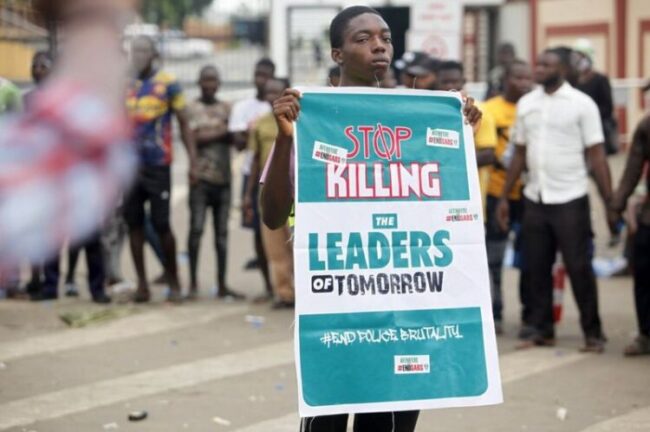
Youth Power!
Sixteen years ago I subtitled my ‘Youth Power!’ book, “unleashing the potential of the most powerful people on earth.” This pandemic year is giving us ample proof.

Nigerian youth at the #EndSARS protests. Youth are leaders of today; not just tomorrow. Photo credit: EPA
The recent George Floyd protests in the United States of America and around the world and current #EndSARS campaign in Nigeria against notorious police brutality have reignited my convictions about Youth Power!, well-documented in a 2004 book by that title. “This [#EndSARS] protest has been largely driven by young people,” I just heard from a CNN report.
YouthPower! is a revolutionary paradigm which seeks to start a fire in Young People for them to get their act together and do something significant with their lives…Now! For the last 16 years I have “been preoccupied with looking for evidence of Youth Power! all over the world and in all spheres of human endeavour since introducing that paradigm-shifting concept” in the mid 2,000s. Some other books that I have written to document such stories have included 15 Inspiring Young People and 15 Successful Global Businesses Young People Built, from Amazon to Time magazine.
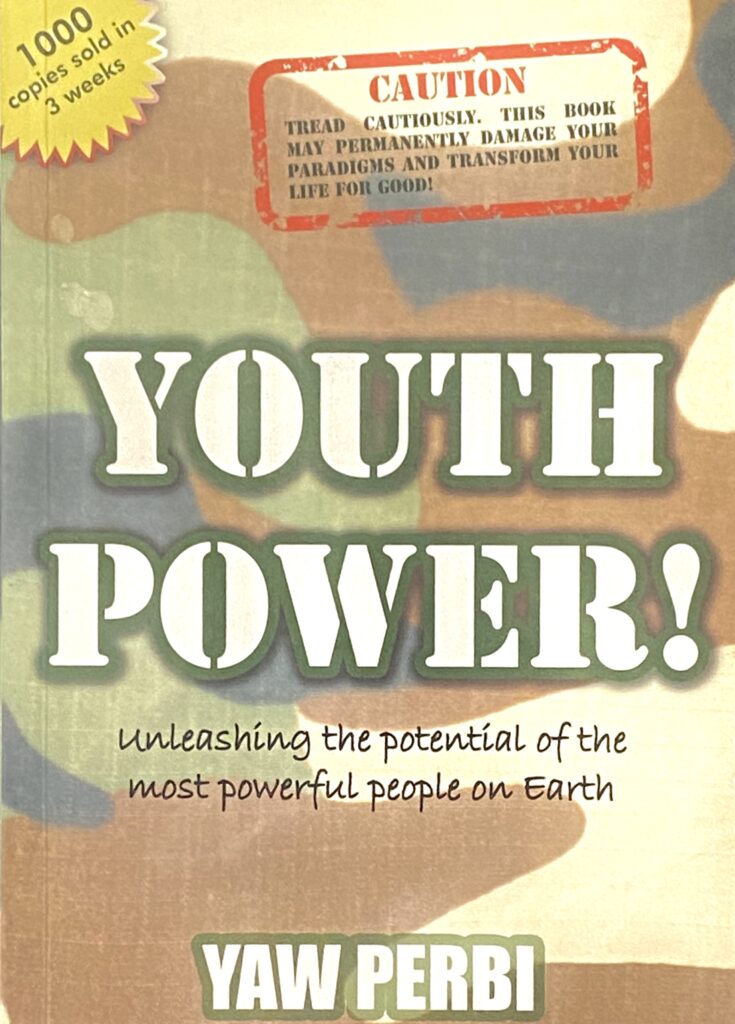
The 2004 publication YouthPower! had a foreword by Dr. Mensa Otabil
Young people have a lot going for them; youth have a lot of power! First, the numbers–there are more young people on earth than ever before in the history of the world! And that is power. But wait, there’s more. Young people have influence, the ability to control people and situations–even holding governments to ransom. That is power. Young people have incredible talents and special abilities which peak at this time of their lives. We have seen how they have utilized their tech savviness and power of mobilization to literally get the government of Nigeria to dissolve the said Special Anti-Robbery Squad (SARS) they’re protesting against on 11th October 2020. Shall we talk about the sheer passion, strength and energy of youth? Throughout the history of the world, young people have touched, shaped and shaken the world in politics, academics, business, sports, arts/entertainment etc.
More often than not, though, all this power is stored in the form of potential. The rest of the book Youth Power! is full of keys to unlocking all this power in terms of principles, the proto principle, purpose, planning, preparation, people, places, practices, pruning puny behaviours and ultimately how all of this results in pay.
YOUTH POWER! IN AFRICA
In 2005, the year after Youth Power! was published and widely distributed in Ghana, I was on a break in South Africa, after failing my final year medical school exams in Surgery. A pilgrimage to Soweto inspired me to write “a historical and tourist account of how Youth Power! that broke the back of apartheid in South Africa.” That sequel is entitled “Youth Power! in Soweto.” For the whole year I served as a doctor-captain with the United Nations Operations in Cote d’Ivoire, it was my joy and pleasure to walk scores of Ivorian Young People at the Université de Bouaké through the paradigm and practice of Youth Power! They even run a contest, translating the book into French.
Today’s protests remind me of the eternal words of one of the young student protestors back in apartheid South Africa in the late 1970s. You can see those words becoming flesh in today’s young protestors also, from Washington to Lagos:
“Our parents are prepared to suffer under the white man’s rule [or any form of injustice and brutality for that matter]. They have been living for years under here laws and they have become immune to them. But we strongly refuse to swallow an education [or whatever] that is designed to make us slaves in the country of our birth.”
As I participate in hash tagging, donating and encouraging the strong network of The HuD Group (publishers of the original Youth Power!) in Nigeria and around the continent of Africa to keep pressing for positive change, I look forward to adding to the thick annals of Youth Power!, yet another sequel: the contemporary history of Youth Power! in Nigeria.
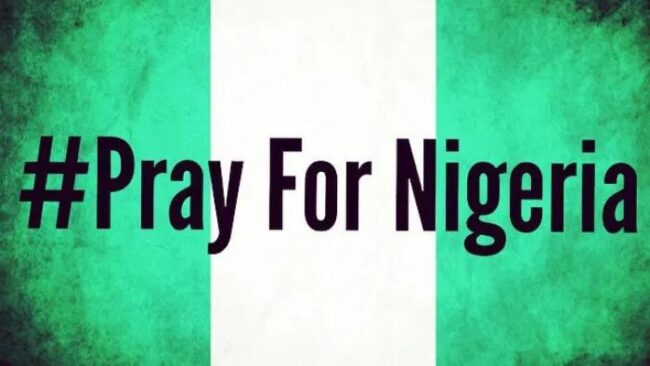
Nigeria is Too Important to Fail

Leaders and organizers of the Africa Impact Forum in February 2020 (Photo credit: Africa Leadership Initiative)
What a year for Black folk! From police brutality in the United States of America (USA) to same in the western region of Africa, White on Black, Black on Black, what a year! One would think that having commemorated 2019 as 400 years after the first Black slaves set foot in what is now the USA the news wouldn’t smell of Black beatings and lynchings and treatment as less than human any longer but here we are. In this season we’ve had the luxury of both time (thanks to COVID-19) and technology to etch these news clips into our consciences and reveal to us not only where we stand but even more deeply, who we are.
On the last day of this year’s Africa Impact Forum (February 26-29) for fellows of the Africa Leadership Initiative, a part of the Aspen Global Leaders Network, my heart was really stirred by Olara Ottunu, Ugandan diplomat, lawyer and politician. He was Uganda’s Permanent Representative to the United Nations from 1980 to 1985 and was the United Nations Under-Secretary-General and Special Representative for Children and Armed Conflict from 1997 to 2005. Olara Ottunu minced no words in the final plenary that there can be no African prosperity without Nigeria and the Democratic Republic of Congo doing well. These ‘big boys’ are the most populous Anglophone and Francophone nations on the 55-state continent of Africa. I have since not looked at Nigeria the same way. Nigeria is too important to fail.
If Black Lives Matter, then the most populous Black country on earth matters immensely. Altogether the over 200 million Nigerian people of 300 tribes matter; individually, each person matters. And by the way, Nigeria will overtake the United States to become the third-most populous country in the world by 2050, surpassing the 300 million people mark, according to a United Nations report. The current seventh most populous country in the world is not only rich in people but also oil and other natural resources. This goes without saying.
Boasting of one of the most vast African Diaspora populations in the world, I have personally had the pleasure of forging deep friendships with Nigerians at medical school in Ghana and as president of International Students Ministries Canada today, delight to see them shine among the top 10 sending countries of international students to Canada. If Africa is the most numerically Christian continent in the world today, it is significantly in part due to Nigeria’s over 90 million strong Christian population.
When Africa’s largest market of 200 million people (twice the size of Ethiopia’s 110 million or Egypt’s 102 million) surpassed South Africa to become the continent’s largest economy as well last year, the business experts had to admit, “Now It’s Too Big for Businesses to Ignore.” Why do you think the United States and United Kingdom have over $55 billion in foreign direct investments in Nigeria, with the Chinese following close after France? Not to mention Italy, India, South Africa, Singapore and Switzerland.
NIGERIA IS WORTH SAVING
When George Floyd was slowly slaughtered before the eyes of a watching world and protests erupted all over the United States and around the world, one of the most profound things I heard was that if Africa had upped her socio-economic game many African-Americans would’ve rather returned ‘home’ than suffer such indignity in the U.S. Even then for some, freedom and dignity matter more than economics, so have responded to overtures from governments like Ghana’s to ‘come home.’ “We want to remind our kin over there that there is a place you can escape to,” said Akwasi Agyeman, chief executive of the Ghana Tourism Authority. “That is Africa.” Now, if I may ask, what is the sense in Blacks escaping police brutality in America, crossing the expansive Atlantic, only to come ‘home’ to the same police brutality, Black on Black?
I am very proud of the display of Youth Power! that has called for #EndSARS and indeed has succeeded in the dissolution (on 11th October, 2020) of the Special Anti-Robbery Squad (SARS) of the Nigeria police which has meted out unspeakable crimes against the citizens of Nigeria. Now some protests are deteriorating into rioting while law enforcement is metamorphosing into death squads firing live ammunition into crowds. As Global CEO of The HuD Group, with HuD Nigeria as one of our strong networks, we demand that elected officials as well as the teeming youth be response-able (responsible) and remember that they hold the dignity and prosperity of the entire Black race in their hands.
All nations matter but not all nations are equally strategic. You would think some of the reasons given above why Nigeria is too important to fail are rather carnal but once upon a time when God Himself wanted to save a certain nation from destruction His reason for sending them a prophet to save them from themselves was pretty intriguing: “And should not I pity Nineveh, that great city, in which there are more than 120,000 persons who do not know their right hand from their left, and also much cattle?” (Jonah 4:11) The numbers of humans matter, the natural resources matter. Nigeria is too big and too important to fail. #PRAY FOR NIGERIA!
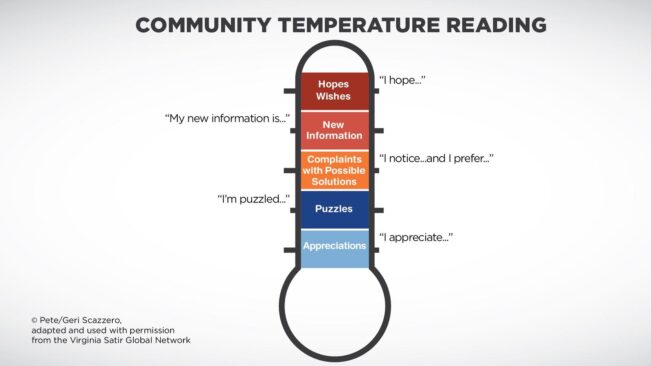
Here’s how to love, for real.
Love is an attitude (head), affect (heart), and action (hands). Here’s a way to get a handle of it, literally!
“LOVE” might very well get the vote for the most used and abused word, ever! It’s a good thing that languages like Spanish and Greek help a little by having different words to mean different kinds of love, from a ‘strong like’ to ‘brotherly/sisterly love’ to ‘unconditional love’ to sheer ‘eros.’
If truth be told though, the hardest part about love isn’t so much understanding it; it is showing it. I have a mentor who likes to say that the biggest gap in the world is the gap between knowing and doing. But sometimes we just don’t know how.
The Community Temperature Reading (CTR) by my mentors Pete and Geri Scazzero (an adaption of Virginia Satir’s work) has helped me practically love my spouse, children, friends and team members much better and I suspect might be of use to you too.
1. APPRECIATIONS | “I appreciate…”
Call it thanksgiving or praise, even God loves to be appreciated! I suspected having created us in His image and likeness makes us love being appreciated as well. Learn to say, “I appreciate…” eg. “I appreciate washing the dishes last night when I was too tired to.” Like me, some people, cultures and families are very stingy with appreciations. I tend to verbally appreciate only, almost exclusively, extremely high performance but I’m learning to be much more generous in saying, “I appreciate…”
You may have come across Dr. John Gottman, “the guy that can predict divorce with over 90% accuracy.” According to him, for every one negative feeling or interaction between partners, there must be five positive feelings or interactions. How is your appreciation:criticism ratio? The last I checked, I didn’t like my ratio with my children. I’m working on that.
2. PUZZLES | “I am puzzled…”
My most frequent exercise is “jumping to conclusions,” especially in situations in which I have little information yet strong opinions and a big mouth. And it doesn’t help at all that my ‘high D’ personality makes me unafraid to confront people and situations! I often come across as judgemental, even when I have the best of intentions.
I’ve learnt that “puzzle is a loving word.” Now instead of being super upset and angrily asking one of my staff, “Why didn’t you reply my email?” (with all sorts of assumptions lurking) I’m learning to rather say something like, “I’m puzzled as to why you didn’t reply my email.”
Peter and Geri Scazzero share in their Emotionally Healthy Relationships course, “instead of thinking, No one washed the dishes last night. I live with a bunch of slobs! you can say, “I’m puzzled as to why you left your dirty dishes in the sink last night.”” Try it. You can appreciate me later.
3. COMPLAINTS WITH POSSIBLE SOLUTIONS | “I notice… and I prefer…”
If you adopted this one, I would feel really loved as my personality cannot stand whining but loves solutions. No doubt, as long as we are imperfect humans in a broken world we will all have concerns and complaints. Many of us tend to suffer in silence though on one hand or unproductively complain about everything without taking responsibility for anything, not even suggestions for improvement.
The panacea to this, how to love well when there are things you don’t dig, is to use the words: “I notice… and I prefer…” eg. “I notice our clinical meetings start late, and I prefer we start at the agreed upon time.” This gives voice, a respectful voice, but also gives the other ears to hear, especially coming with a clearly stated alternative. Even if the ‘possible solution’ preferred is merely the opposite of the complaint, like in the example above, verbalizing it as an alternate proposal will be taken better. Give it a try.
4. NEW INFO | “My new information is…”
True, “love does not keep a record of wrongs;” but true love keeps news up to date. I wise man once told me, “It isn’t distance that keeps us apart; it is silence.” If you know me well as a public speaker and prolific writer you might find it hard to believe this but I tend not to be as communicative at home as I am in public. The CTR tool has given me a reason to consciously say, “My new information is…” It could be about an event, decision, appointment, achievement, opportunity, activity, whatever! As the Scazzeros put it, “relationships can only grow when people know what is happening in each other’s lives, both the trivial as well as the important.”
5. HOPES AND WISHES | “I hope…”
I found out rather late in my marriage how much Anyele feels loved when we verbalize our hopes, dreams and plans for the future. No wonder!, for “hopes and wishes offer windows into our unique souls, revealing significant parts of who we are” (Pete & Geri Scazzero). eg. “I hope we can get to visit the Caribbean next year.”
“LOVE ME THIS WAY”
The people in our lives are crying out, “this is how I want to feel loved, would you please love me this this way?” If we all regularly practised any of these five skills the people in our lives would feel loved; if we did more than one often they would feel much loved; if we made a habit of all five they surely would feel very much loved. Don’t just say you love somebody; don’t just feel the feeling, do it these five ways! If you didn’t know how, now you do!
Post Script | Great Commandment vrs. Great Commission
For those who are Christ followers, it may be worth noting that the Great Commandment (to love God with your all and love your neighbour as yourself) comes before the Great Commission (to make disciples) in sequence and in rank (Jesus said the greatest command is love). Besides, the Great Commission includes teaching the Great Commandment if we are to teach folks to do everything Christ commanded. The first of the fruit of the Spirit is love. Remember God Himself is love. “And now these three remain: faith, hope and love. But the greatest of these is love.” There’s no way getting round love as a Christ follower.
One curious thing about the Great Commission is how many of us have read it to mean that making disciples of Jesus is by teaching them stuff that Jesus commanded. Meanwhile, a careful and slow re-reading of the text shows the essence is to train or teach people how to obey the stuff Jesus commands. Jesus said “teach them to obey everything I have commanded you” not just “teach them everything I have commanded you.” No wonder there are so many Christians who know ‘everything’ but do nearly nothing the Scriptures say! This understanding of the Great Commission has made a world of difference to me and those I walk/work with. The Community Temperature Reading (CTR) tool above, teaches you how to obey the command to love. Try it!

Not right or wrong; just different.
As Jesus and his disciples were on their way, he came to a village where a woman named Martha opened her home to him. She had a sister called Mary, who sat at the Lord’s feet listening to what he said. But Martha was distracted by all the preparations that had to be made. She came to him and asked, “Lord, don’t you care that my sister has left me to do the work by myself? Tell her to help me!”
“Martha, Martha,” the Lord answered, “you are worried and upset about many things, but few things are needed—or indeed only one. Mary has chosen what is better, and it will not be taken away from her.” (Luke 10:38-42)
VERTICAL AND HORIZONTAL RELATIONSHIP DYNAMICS
Of course the usual point drawn from the Mary and Martha anecdote is importance of “slowing down for loving union with Jesus,” “being with Jesus rather than doing for Jesus” et. And that is all true. In fact, I have a mentor who suspects that even “if Martha were to sit at the feet of Jesus, she would still be distracted by everything on her mind. Her inner person is touchy, irritable, and anxious” (Peter Scazzero). Granted, this account is about our vertical relationship with God (spirituality) but what about the possibility that these two sisters were wired differently in relating to people (horizontally)?
MARY IS A PEOPLE PERSON; MARTHA IS A PROJECT PERSON
I just finished re-reading the story of Mary and Martha and couldn’t help noticing that these sisters of Lazarus must’ve had very different personalities. Before we assume Mary was spiritual just because she sat at the feet of Jesus listening to him or that Martha was unspiritual just because she was running around choring and checklisting, think again: both were friends of Jesus. They had invited Jesus into their home (if you like, even into their hearts) to sup with them. They were both spiritually connected, so-to-speak.
Martha most likely was a high D or high C, highly task-oriented; while Mary in all probability was a high I or high S, highly people-oriented. Personally, knowing that people are wired differently from me, personality-wise, has ‘cut my sinning in half,’ in the sense that many things I’ve wrongly judged in people as a moral, ethical or even spiritual issue have now proven to be just different, not a matter of right or wrong.
My mentor asked, “in what way(s) did your to-do list, distractibility, or perfectionism keep you from loving and enjoying Jesus or the people around you?” That is is when I noticed I hardly keep in mind that time for tasks often means no time for people (or Jesus for that matter). “Opportunity cost,’ that’s what the economists like my dear wife call it. I’m finding that I need to set fixed goals and fixed hours for tasks and whack them like Martha, so I’m also able to make quality time for people with the rest of my time (not necessarily ‘surplus’ time), to be fully present with Jesus and with people, like Mary.
In fact, often über project-oriented people have to set making time for relationships as a task in order to make it happen. Meanwhile someone needs to tell people-oriented people to also get some work done!
DISCOVER YOUR DISC
Scottish Olympic medalist Eric Liddell said, “I believe God made me for a purpose, but he also made me fast. And when I run I feel His pleasure.” People-oriented and project-oriented folks can both bring God pleasure; they both can impact people for good. Both their being and their doing can please God and bless people.
Everyone reading this has done the DISC personality assessment, I hope. If you haven’t, may I suggest it’s one of the first steps in knowing yourself better so you can have healthier relationships and deeper fulfillment leading a life of significance–and all the while just being yourself. If you need to take it, drop me a note ASAP (yawperbi@gmail.com).
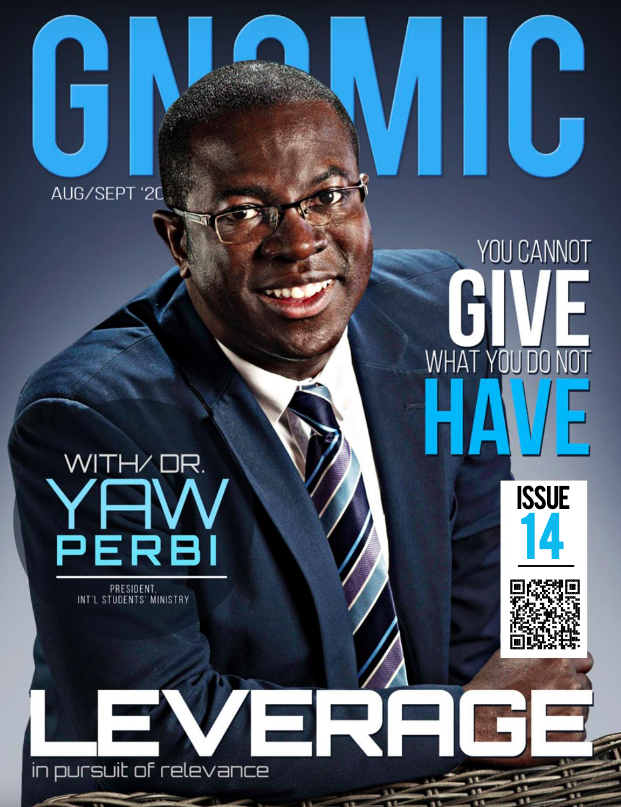
Gnomic Interview
So these medical students recently caught up with me and did a fun interview. Hope it’s as much a fun read for you as it was hanging out with them! I pray they catch God’s heart for calling them and become missional medics!
Read here, from page 40.
Prayer by an Unknown Confederate Soldier
The pray-er of this now-famous prayer might be unknown; but the truth of its content, many of us must be quite familiar with. At least I know I am.
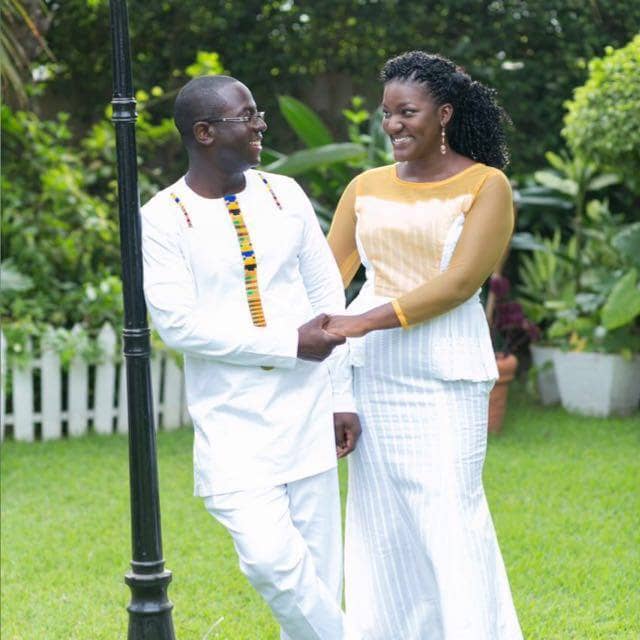
That’s Anyele, my dear wife. She’s the best for me, for sure! She’s an answer to prayers prayed and those I didn’t even know to ask! “Almost despite myself, my unspoken prayers were answered. I am, among all people, most richly blessed.”
“I asked God for strength, that I might achieve, I was made weak, that I might learn humbly to obey.
I asked for health, that I might do greater things. I was given infirmity that I might do better things.
I asked for riches, that I might be happy. I was given poverty, that I might be wise.
I asked for power, that I might have the praise of others, I was given weakness, that I might feel the need for God.
I asked for all things, that I might enjoy life, I was given life that I might enjoy all things.
I got nothing that I asked for — but everything that I had hoped for.
Almost despite myself, my unspoken prayers were answered.
I am, among all people, most richly blessed.”
Prayer by an unknown Confederate Soldier.

